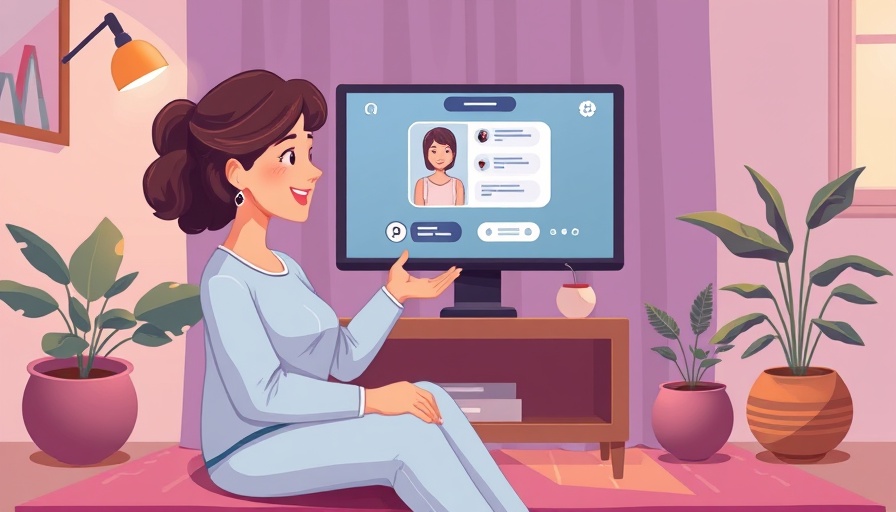
Understanding the Challenge of AI Crawlers
In today's digital age, web crawling bots, particularly those driven by AI, have become a pervasive issue, often described as the "cockroaches of the internet" by software developers. These bots run rampant across the web, causing significant disruption especially to open-source developers who tend to operate with fewer resources and share their infrastructure more openly than their commercial counterparts. This article delves into the struggles faced by these developers and how they are ingeniously fighting back against relentless AI scrapers.
How AI Crawlers Operate
AI crawlers have little regard for the standard protocols designed to manage their behavior. Despite guidelines like the Robots Exclusion Protocol or robots.txt files, many bots choose to ignore them. This leaves open-source developers particularly vulnerable, as they often rely heavily on Git servers to share their projects. Unscrupulous bots, such as the notorious AmazonBot, can leverage a variety of tactics—from obfuscating their real identity with proxy IP addresses to continuously hammering a website with excessive requests—leading to server outages and a virtual collapse of the services they provide.
Inventive Responses of Open Source Developers
As the situation deteriorated, developers like Xe Iaso took matters into their own hands with creative solutions. Iaso crafted a tool named Anubis, a reverse proxy proof-of-work mechanism targeting bot traffic while allowing genuine human interactions to pass through. The charm of Anubis lies not just in its efficacy but also in its humor; if a bot is blocked, the request is denied, whereas a successful human interaction brings up a whimsical anime representation of Anubis himself, weighing the digital 'souls' of requests. Such inventive measures reflect not just a technical solution but also a cultural response within the FOSS community against the aggressive tactics of AI crawlers.
The Community's Collective Struggle
Moving beyond individual efforts, the response among the open-source community reveals a shared struggle against these AI-driven threats. Developers like Drew DeVault of SourceHut describe investing upwards of 100% of their time grappling with non-stop scrapers and incessant outages. Jonathan Corbet, another key figure in the FOSS space, corroborates these experiences, noting how DDoS-level traffic from these scrapers has hindered operations on his news site for the Linux community. In a remarkable instance, Kevin Fenzi from the Fedora project even resorted to blocking entire countries to manage the overwhelming traffic caused by scraper bots.
Patterns and Strategies for Future Defense
This widespread assault from AI crawlers raises critical questions about the future of open-source projects. Collaborative solutions that safeguard against unnecessary scraping could emerge as a sustainable path forward. The rapid adoption of tools like Anubis highlights the urgency for developers to create robust defenses against predatory crawling techniques. Simultaneously, the need for a comprehensive digital policy could evolve to not only protect individual projects but serve the broader open-source community.
Legislative Considerations and Ethics
As more developers confront the ramifications of aggressive AI crawling, discussions surrounding ethical considerations come to the forefront. How much responsibility lies with developers for creating enduring solutions? And what role should policymakers play in protecting the integrity of online platforms against AI misuse? The questions beg for a reevaluation of existing regulations governing digital conduct, which may not be sufficient to counter the current landscape shaped by advancements in AI.
The Broader Impacts on Digital Culture
This battle between FOSS developers and AI crawlers is more than a technical challenge; it is a reflection of the broader internet culture. Open-source projects often thrive on collaboration and community-driven development, but aggressive AI scraping threatens these principles. By rallying against these crawlers, developers not only defend their work but also uphold the spirit of openness and shared knowledge that defines the open-source movement.
The ongoing evolution in AI technology requires constant adaptation and vigilance from developers committed to the ideals of open-source software. As they employ clever and sometimes humorous tactics to stem the tide of bot invasions, these developers demonstrate resilience and a deep-seated commitment not only to their projects but to the values of the community.
By tuning into these ongoing struggles and understanding their implications, readers can appreciate the dynamic conversations around privacy, access, and ethical usage of technology in a rapidly changing digital landscape.
 Add Row
Add Row  Add
Add 




 Add Row
Add Row  Add
Add 

Write A Comment